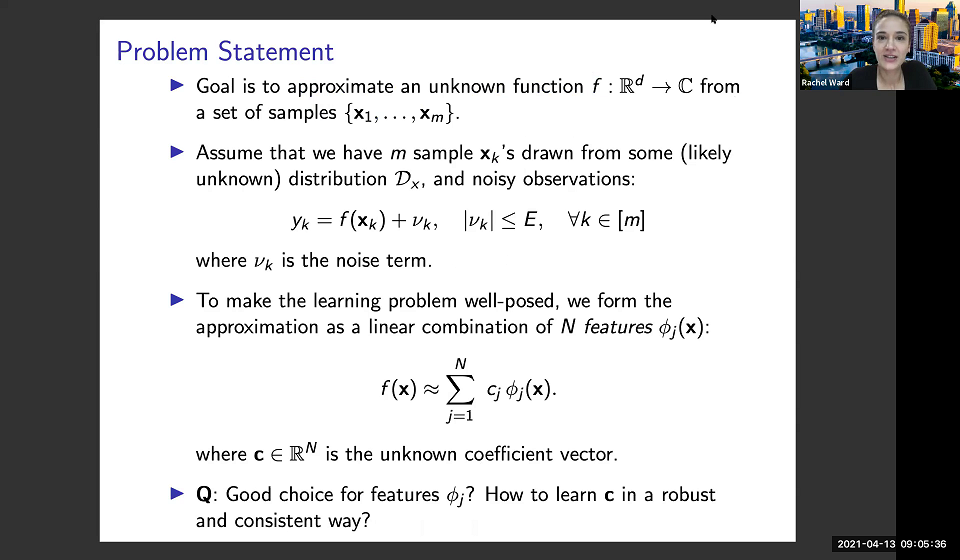Sparse Random Features for Function Approximation
Presenter
April 13, 2021
Abstract
Random feature methods have been successful in various machine learning tasks, are easy to compute, and come with theoretical accuracy bounds. They serve as an alternative approach to standard neural networks since they can represent similar function spaces without a costly training phase. However, for accuracy, random feature methods require more measurements than trainable parameters, limiting their use for data-scarce applications or problems in scientific machine learning. This paper introduces the sparse random feature method that learns parsimonious random feature models utilizing techniques from compressive sensing. We provide uniform bounds on the approximation error for functions in a reproducing kernel Hilbert space depending on the number of samples and the distribution of features. The error bounds improve with additional structural conditions, such as coordinate sparsity, compact clusters of the spectrum, or rapid spectral decay. We show that the sparse random feature method outperforms shallow networks for well-structured functions and applications to scientific machine learning tasks.
